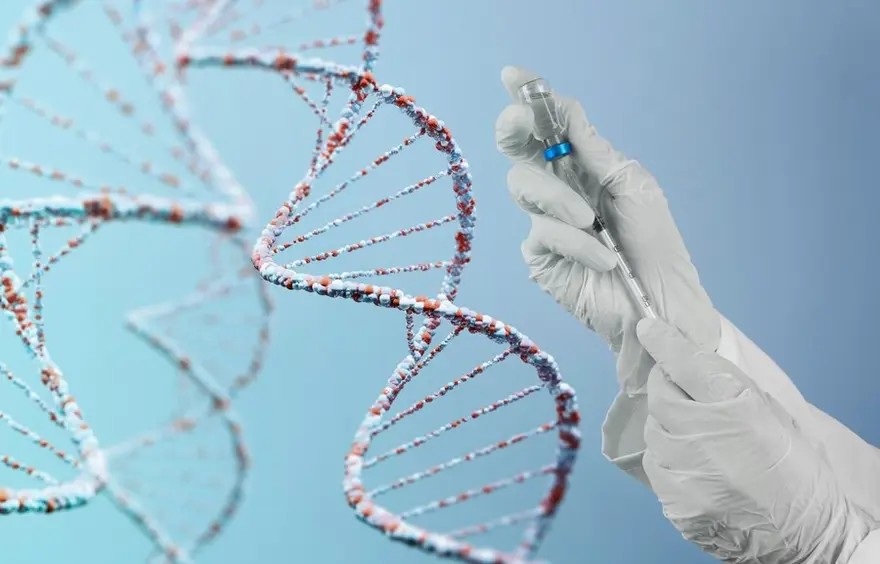Did you know that hearing loss or digestive issues could be symptoms of genetic disorders? Surprisingly, many genetic disorders have symptoms like hearing loss, digestive issues, or loss of vision that are difficult to separate from other diseases. Therefore, it’s important to be mindful of common genetic disorders and their symptoms for prompt treatment. Luckily, understanding these disorders and their symptoms doesn’t require deep knowledge of medical genetics. Keep reading as we explore common genetic disorders and their symptoms. But, first, let’s understand what genetic disorder is.
What is a Genetic Disorder?
Genetic disorders occur due to gene mutations or when there’s an abnormal amount of genetic material. Genes are composed of DNA (Deoxyribonucleic Acid), which contains instructions for cell functions and the traits that make each person unique. Genes are inherited from biological parents, and gene mutations can be passed down from one parent or both. However, that’s not always the case always, some disorders also develop gradually over time due to other factors.
What are the Causes of Genetic Disorder?
Normally, DNA present in your genes provides instructions for making proteins, which are essential for complex cell processes that maintain health. A gene mutation alters these protein-making instructions, resulting in missing proteins or non-functional proteins. There are many reasons for a gene mutation. Below, we have listed the causes of gene mutations, which directly contribute to the development of genetic disorders.
- Excessive chemical exposure
- Radiation exposure
- UV exposure
- Smoking
What are the Symptoms of Genetic Disorder?
Here are some of the common symptoms of genetic disorders. However, it’s important to remember that symptoms may vary depending on the disorder.
- Behavioural changes
- Breathing difficulties
- Cognitive issues, where the brain struggles to process information
- Delays in development, leading to poor speech or social skills
- Challenges with eating and digestion, like trouble swallowing or absorbing nutrients
- Physical anomalies in limbs or facial features, such as missing fingers or a cleft lip
- Movement disorders caused by muscle stiffness or weakness
- Neurological issues like seizures or stroke
- Poor growth or short stature
- Loss of vision or hearing
Different Types of Genetic Disorder
Genetic disorders can be divided into three categories—chromosomal disorders, complex or mutlifactorial disorders, and single-gene disorders.
Chromosomal disorders impact the chromosomes that house your genes. These disorders involve missing or duplicated chromosome material. Complex or multifactorial disorders, on the other hand, arise from a combination of gene mutations and various environmental factors. These factors can include chemical exposure, diet, specific medications, and the use of tobacco or alcohol. Lastly, single-gene disorders or monogenic disorders result from mutations in a single gene.
Here are some common genetic disorders:
- Chromosomal Disorders –
- Down Syndrome
- Triple-X Syndrome
- Turner Syndrome
- Multifactorial Disorders –
- Arthritis
- Autism Spectrum Disorder
- Late-onset Alzheimer’s Disease
- Coronary artery disease
- Diabetes
- Migraine
- Cancer
- Single-gene Disorders –
- Cystic Fibrosis
- Familial Hypercholesterolemia
- Hemochromatosis
- Sickle Cell Disease
- Deafness at birth
Conclusion
If you have a family history of a genetic disorder or are experiencing any of the symptoms mentioned above, you should consider genetic counselling to determine which genetic testing is appropriate for you. Genetic counsellors explain you how to take the right steps to protect your health and well-being.
Moreover, if you are expecting a baby, make sure to undergo pregnancy scans to rule out any potential genetic abnormalities early in the pregnancy. Early detection allows for informed decisions and proper medical care to ensure the best possible outcome for you and your baby.

